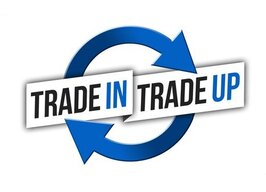
ERASE is proud to host a special program known as RAD (Responsible Air conditioning Disposal).
This initiative seeks to provide the public with an ethical environmental solution to properly dispose of their air conditioning and refrigeration units.
Clients are welcome to contact ERASE to come and collect their units, free of charge! ERASE also offers a Trade-in-Trade-up service, in which clients are offered a discounted price on new A/C units offered by ERASE, after having the old unit removed.
Why can't you simply throw an air-conditioner/refrigerator away with other rubbish?
Refrigeration/AC equipment has historically used refrigerants and/or insulating foam, such as chlorofluorocarbons (CFCs) and hydrochlorofluorocarbons (HCFCs), which deplete the stratospheric ozone layer and contribute to global climate change. Newer refrigeration/AC equipment is likely to contain hydrofluorocarbons (HFCs), which are used as ozone-friendly substitutes for CFCs and HCFCs but still contribute to climate change.
This initiative seeks to provide the public with an ethical environmental solution to properly dispose of their air conditioning and refrigeration units.
Clients are welcome to contact ERASE to come and collect their units, free of charge! ERASE also offers a Trade-in-Trade-up service, in which clients are offered a discounted price on new A/C units offered by ERASE, after having the old unit removed.
Why can't you simply throw an air-conditioner/refrigerator away with other rubbish?
Refrigeration/AC equipment has historically used refrigerants and/or insulating foam, such as chlorofluorocarbons (CFCs) and hydrochlorofluorocarbons (HCFCs), which deplete the stratospheric ozone layer and contribute to global climate change. Newer refrigeration/AC equipment is likely to contain hydrofluorocarbons (HFCs), which are used as ozone-friendly substitutes for CFCs and HCFCs but still contribute to climate change.

All ERASE technicians and engineers are certified and licenced SAQCC GAS practitioners
This means that all staff E.R.A.S.E staff dealing with refrigerants gasses were given training and assessed by the South African Dept of labour as competent within the scope of their work. After being found competent, they were registered with SAQCC-Gas, in order to obtain their license card as required by law.
SAQCC GAS has been officially appointed and mandated by the Department of Labour to register gas practitioners, on their behalf, within the gas industries. SAQCC GAS is a central database which displays details of all the registered and authorised Gas Practitioners to work on gas and gas systems within South Africa.
All E.R.A.S.E Staff Completed Courses in Identification and Safe Handling of Refrigerants.
This means that all staff E.R.A.S.E staff dealing with refrigerants gasses were given training and assessed by the South African Dept of labour as competent within the scope of their work. After being found competent, they were registered with SAQCC-Gas, in order to obtain their license card as required by law.
SAQCC GAS has been officially appointed and mandated by the Department of Labour to register gas practitioners, on their behalf, within the gas industries. SAQCC GAS is a central database which displays details of all the registered and authorised Gas Practitioners to work on gas and gas systems within South Africa.
All E.R.A.S.E Staff Completed Courses in Identification and Safe Handling of Refrigerants.
- Identify refrigerant containers, explain handling procedures and discuss the use of refrigerants (116334)
- Handle refrigerant containers and transfer refrigerants into service cylinders (116355)
- Maintain safety in the handling of group 1 and 2 refrigerants (116700)





